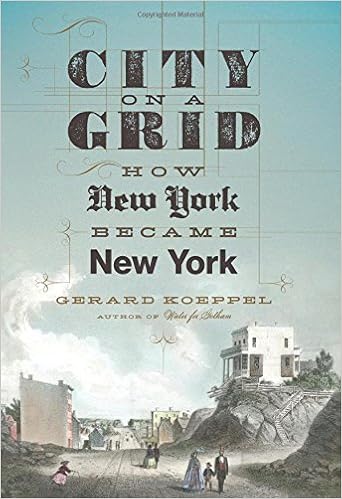The Skyscraper Museum is devoted to the study of high-rise building, past, present, and future. The Museum explores tall buildings as objects of design, products of technology, sites of construction, investments in real estate, and places of work and residence. This site will look better in a browser that supports web standards, but it is accessible to any browser or Internet device.
City on a Grid: How New York Became New York
Da Capo Press, 2015

No other grid in Western civilization was so large and uniform as the one ordained in New York in 1811. Not without reason. At the time, the city was just under two hundred years old, an overgrown town at the southern tip of Manhattan, a notorious jumble of streets laid at the whim of landowners. To bring order beyond the chaos—and good real estate to market—the street planning commission came up with a monolithic grid for the rest of the island. Mannahatta—the native "island of hills"—became a place of rectangles, in thousands of blocks on the flattened landscape, and many more thousands of right-angled buildings rising in vertical mimicry.
Gerard Koeppel is a native New Yorker, historian, and writer. He is the author of Bond of Union: Building the Erie Canal and the American Empire and Water for Gotham: A History. Koeppel has contributed to numerous other books, including the Encyclopedia of New York City, of which he was an associate editor, and The Greatest Grid: The Master Plan of Manhattan.
Visit our Programs Archive Video Index!
The exhibitions and programs of The Skyscraper Museum are supported by
public funds from the New York City Department of Cultural Affairs and the New York State Council on the Arts, a State Agency.



